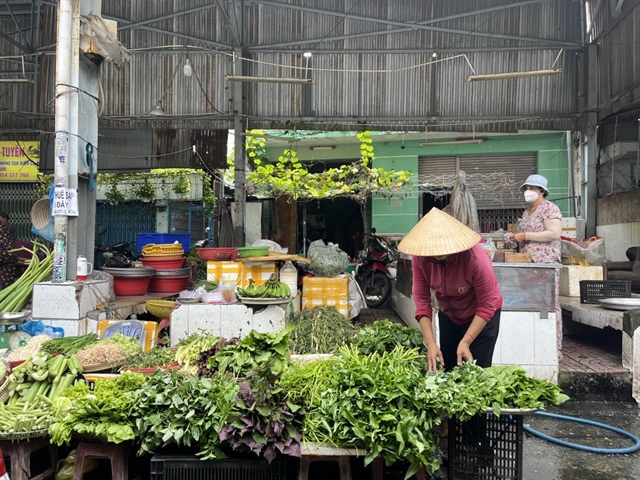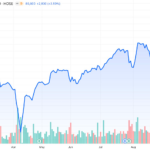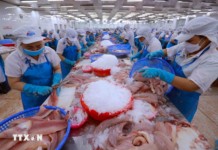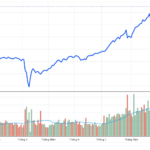The Ho Chi Minh City Business Association (HUBA) has submitted a report to the Ho Chi Minh City People’s Committee regarding the business performance of enterprises (enterprises) in Q3-2025.
Increase in suspended operations among micro-enterprises
Survey results indicate that most businesses experienced stable operations. Specifically, 30% of enterprises reported increased revenue, significantly higher than the 26% that saw a decline. However, rising input costs have impacted the profits of most enterprises. As many as 41% reported decreased profits, while only 26% saw an increase.
Despite this, business confidence in the upcoming period remains high, with 63% expressing optimism. This reflects the positive impact of government policies on public investment and private sector development support.
Additionally, 52% of enterprises positively assessed the city’s business environment. However, the processing of files following administrative boundary mergers remains slow, with 41% expressing this view.
Q3 results show that industries related to construction and real estate have strong recovery prospects, benefiting from policies promoting public investment and resolutions on private economic development, science and technology, administrative procedure reform, and international integration.
Meanwhile, traditional, labor-intensive industries such as textiles, footwear, and furniture are contracting. For example, the food processing industry faces domestic prices higher than imports. Domestic pork prices exceed foreign prices due to high feed costs, small-scale farming, and outdated technology.
 |
The report also highlights challenges for small enterprises and household businesses. Fierce competition from e-commerce and changing consumer habits have led to the closure of many traditional stalls and shops.
Furthermore, stricter policies on counterfeit goods and regulations on invoices and tax declarations have been sudden changes. Many older individuals with limited accounting and technology knowledge find it difficult to adapt.
As a result, the number of small and micro-enterprises temporarily suspending operations has increased by over 10% year-on-year. On average, nearly 20,000 enterprises exit the market each month. Additionally, many inactive enterprises have not completed dissolution or bankruptcy procedures.
74% of enterprises propose tax and fee reductions
In response to these challenges, the business community has proposed the following to Ho Chi Minh City: Reduce taxes, fees, social insurance, and union fees (74%); Stimulate investment and consumption (63%); Promptly address reasonable business proposals (56%); Develop infrastructure (41%); Provide credit support and reduce interest rates (33%).
The Ho Chi Minh City Business Association has also suggested specific policies.
First, regarding the temporary exit ban due to tax arrears. This measure significantly impacts transactions, contracts, and business reputation. HUBA proposes applying this measure only when there is clear evidence that the legal representative has received a tax authority notice.
Second, concerning the revocation of business registration certificates due to tax arrears. This severely affects business survival, directly impacting employees and partners. HUBA proposes revoking licenses only after a court’s final judgment.
Third, regarding land policy. For years, industry associations have proposed the city plan concentrated industrial zones for specific sectors like textiles, footwear, electronics, and food processing. Separate zones would reduce costs for businesses. Customers would also save on travel expenses, lowering product costs and enhancing export competitiveness.
According to HUBA, the city has ample land, including many abandoned areas. However, due to unsuitable land use policies and difficult procedures for converting land to production purposes, businesses cannot lease land for workshops. This creates a paradox where land is abandoned while businesses wait for permits.
The business community urges the city to expedite land-use conversion procedures and construction permits to effectively utilize land. Allow individuals and businesses to immediately convert land no longer suitable for agriculture without annual registration.
Additionally, the Association proposes distinguishing between individuals and their business entities. If an individual faces criminal charges, a replacement mechanism should allow the business to continue operating.
|
According to HUBA, businesses are concerned about existing risks. Primarily, exchange rate risks. Over the past year (September 2024 to September 2025), the high exchange rate has increased business debt, complicating imports and raising raw material costs by 6%. This risk could cause public investment costs and project expenses to exceed initial plans. Additionally, there are risks from the real estate market and bond repayment pressure. Market instability, high apartment prices relative to worker incomes, and heavy bond repayment obligations pose significant economic risks. Specifically, the total value of bonds maturing in the second half of 2025 is estimated at 131,601 billion VND. Real estate bonds alone account for 69,970 billion VND, or 53%. |
TÚ UYÊN
– 09:26 10/10/2025
Proposed Minimum Wage in Ho Chi Minh City for 2026: What to Expect
Workers in communes, wards, and special zones across Ho Chi Minh City are eligible for a minimum monthly wage ranging from 4,140,000 VND to 5,310,000 VND.
Phan Thiet’s Resurgent Real Estate: A 2-Hour Escape from Ho Chi Minh City
The development of new routes has significantly reduced travel time from Ho Chi Minh City to Phan Thiet to just around 2 hours. This convenience has boosted tourism, reigniting investor interest in Phan Thiet’s hospitality real estate market.













































